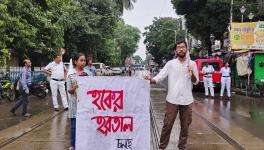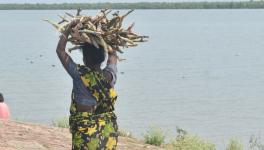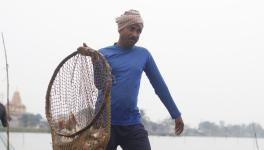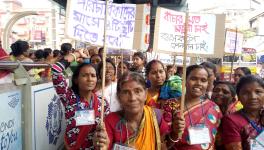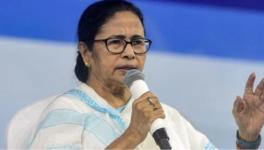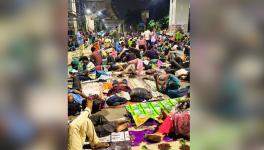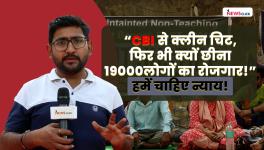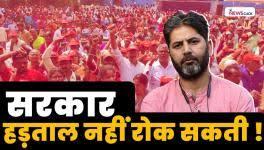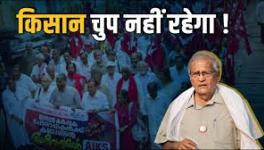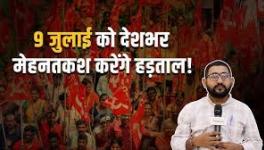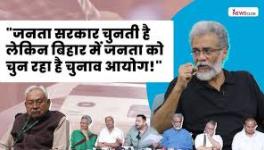West Bengal: The Intersection Between Child Labour and Child Marriage
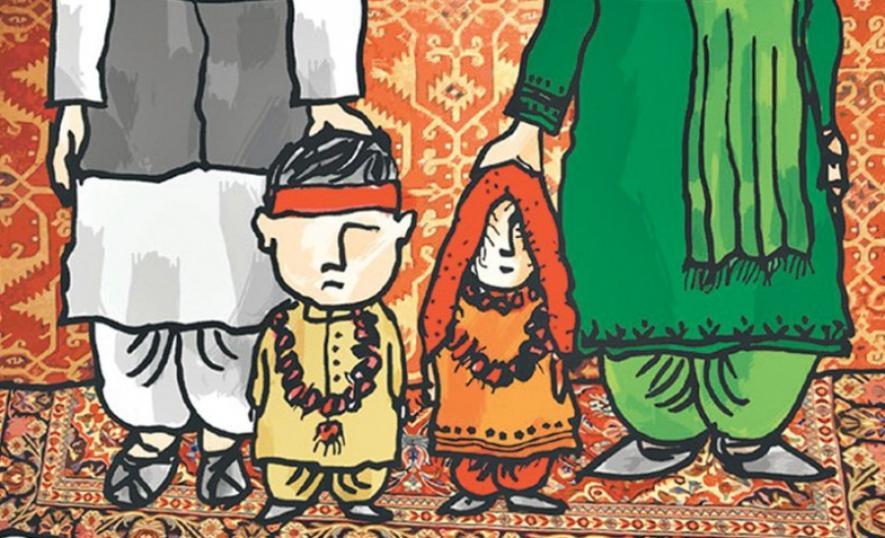
File Image
Kolkata: Khalil Ahmad, 10, (name changed) helps his father sell fruits at South Jagaddal in South 24 Parganas district of West Bengal. A student of Class 5, Khalil tops his class and is considered a meritorious student. His father being illiterate, he does all fruit sales accounting, giving back the exact change to customers.
“I want him to study at least up to Class 10 and then I will arrange his marriage,” his father, Iftiqar Ahmad, shared his plans with NewsClick. When informed that child marriage was prohibited in India, he said “It might be prohibited among the well-off, but in our India, it is the norm. Even the Imam of our mosque has told us to get a young bride for Khalil and other young boys lest they go astray and elope,” he added.
For Abinash Mahato, 8, (name changed), the situation is more grave. One of seven children of a daily wager in Jhalda block of Purulia, he was sent to Kolkata and practically sold to tea stall owner at Garia. The deal was that his father would be paid Rs 800 for Abinash’s work per month in the tea stall, where he would wash utensils and serve customers. When asked about his future plans, Abinash said one day he hoped to own a tea stall, too.
Neha Khatun, 9, who was recently rescued from a house in an apartment block at Narendrapur in South 24 parganas by an NGO, her mother, a domestic worker with three children (two boys and Neha) is estranged from her husband. She said she found it difficult to feed the three mouths. The boys, who are younger, are studying in Dakshin Barasat, so she was trying to marry Neha off. When we warned her about law enforcement agencies, her mother asked: “Will the police feed Neha? By getting married she would at least lead a dignified life.” In the village, marriage at a young age was taking place, and the police was finding it difficult to intrude in these marriages that, as per the local Imam, were “made in heaven.”
The United Nations Children’s Fund or UNICEF, which has been working in the area of child education has often expressed concern over the reported cases of child labour and child marriages in West Bengal.
According to Paramita Neogi, Child Protection Specialist, UNICEF, West Bengal: “UNICEF calls for a multipronged approach to retain children in school through quality education, promotion of access to social protection for families. This UN body promoting children's rights also envisages a trained workforce for need based response and effective law enforcement which can together go a long way in eliminating child labour.”.
When asked, a government official on the condition of anonymity told NewsClick that child marriages were taking place due to “abject poverty”, which was “the real culprit”. The official said the government was trying to intervene in such marriages and instances of child labour, but community pressure and peers sanctioning such marriages made the task difficult, especially among the minority communities due to “pressure from the local Imams.”. Similarly, in the Hindu community, too, such marriages were taking place, with the panchayat members keeping silent and not informing the police and other law enforcement agencies.
Govt Awareness Drive on Child Marriages
With a view to preventing child marriage further in the state, the West Bengal government said it would lay emphasis on building awareness among girls and boys about the harmful effects of this social practice.
"It's not the girls alone, boys also have to be educated about the ill-effects of early marriage and should be demotivated from marrying before their legal age," Shashi Panja, Minister of Women and Child Development and Social Welfare, recently said at a state-level consultation on ‘Adolescent Empowerment’ attended by government officials from various departments across districts.
Panja urged the officials gathered to share their experiences in fighting the menace of child marriage since the launch of the District Action Plan three years ago and later the Child Marriage Reporting and Tracking Mechanism. The state has reported that more than 41% girls were getting married underage in National Family Health Survey-5 (NFHS) released in 2020-21.
Additional District Magistrates and other officials attending the programme reported that many boys were getting married below 21 years of age. "Building awareness in society is the key to stopping this. Also include men and boys more in the meetings on child marriage with girls and women," the minister said, while releasing 'Guidelines for Implementation of the Prohibition of Child Marriage Act 2006 in West Bengal'.
The minister also asked officials from the departments of Health and Family Welfare, School Education, Panchayat and Rural Development, Technical Education, Training and Skill Development to deal with the problem “more empathetically” as present day adolescents were exposed to many lures and distractions, including online and social media platforms on mobile phones. She also highlighted how the Kanyashree Prakalpa scheme had been “empowering adolescent girls on online safety besides motivating them to remain in school and not get married.”
In NFHS-5, the highest number of child marriages were reported to have taken place in Purba Medinipur (57%) followed by Purba Bardhaman (50%) and Jalpaiguri, the lowest at 18%.
Sanghamitra Ghosh, Principal Secretary, WCD department, urged officials to use the Child Marriage Reporting and Tracking Mechanism regularly. The mechanism was launched by the state government, with the help of UNICEF in 2023 to collect data from the districts and portray the real-time situation.
Describing this consultation as “ a renewed call to action”, Monjur Hossain, chief of UNICEF in West Bengal, said holistic development of adolescents required concerted, coordinated and multi-sectoral actions by all stakeholders concerned. "The involvement of key community influencers, panchayat members, SHGs, religious leaders, teachers, students, youths and adolescents is necessary to challenge harmful norms and support girls' and boys' empowerment," he added.
Get the latest reports & analysis with people's perspective on Protests, movements & deep analytical videos, discussions of the current affairs in your Telegram app. Subscribe to NewsClick's Telegram channel & get Real-Time updates on stories, as they get published on our website.










